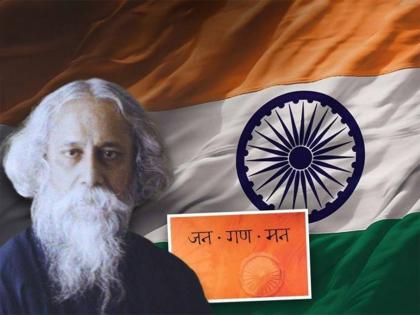Independence Day 2025: Do You Know Who First Sang India’s National Anthem and When?
By Lokmat Times Desk | Updated: August 15, 2025 13:45 IST2025-08-15T13:44:19+5:302025-08-15T13:45:22+5:30
As India celebrates its Independence Day with pride and fervour, millions across the nation are singing the national anthem ...

Independence Day 2025: Do You Know Who First Sang India’s National Anthem and When?
As India celebrates its Independence Day with pride and fervour, millions across the nation are singing the national anthem Jana Gana Mana while saluting the tricolour. Written by Nobel laureate Rabindranath Tagore, the anthem is a timeless emblem of India’s unity and honour. However, few know the fascinating history of when and by whom it was first sung. This iconic composition was first performed on 27 December 1911 at the Indian National Congress session in Kolkata. At that time, the song was titled Bharoto Bhagyo Bidhata and was written in Bengali, carrying a message of hope, unity, and national pride.
The historic first rendition took place in the presence of Congress president Bishan Narayan Dhar. Tagore’s niece, Sarala Devi, lent her soulful voice to the piece, which was set to the tune of Alhaiya Bilawal raga. Only the first stanza was later adopted as the official national anthem. Its lyrics, rich with poetic imagery, celebrated the unity of India’s diverse states while praying for the country’s bright future. First published in the magazine Tattwabodhini Patrika, the anthem gradually spread across the nation. It became a powerful tool during the freedom movement, inspiring unity and patriotism among Indians fighting for independence.
After independence, the anthem retained its emotional and symbolic weight. On 14 August 1947, it was sung to conclude the Constituent Assembly session on the eve of India’s freedom. Later, on 24 January 1950, Jana Gana Mana was officially declared the national anthem of India. Since then, it has been an integral part of national ceremonies, with citizens standing in respect whenever it is played. Today, the song stands as a symbol of unity, pride, and unwavering patriotism. The profound words penned by Tagore continue to ignite a deep love for the country, reminding Indians of their shared heritage and destiny.
Open in app